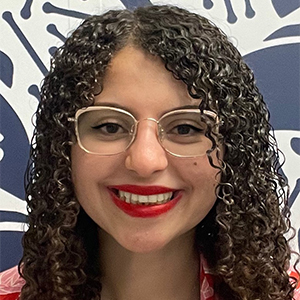Robot swarms can be used as a new and exciting medium through which people can express themselves to one another. The swarm can help facilitate social group tasks that people might face in their daily lives. A robot swarm could especially be useful due to its distributed nature that helps with scaling to many robots and many users.

In her talk, Merihan will present her research that focuses on designing, building, and applying expressive robot swarms that support simultaneous interactions with many people in social tasks. During her doctoral work, Merihan designed and built MOSAIX, a swarm of 100 robot tiles, that was applied in group tasks such as brainstorming, decision-making, and collective art. MOSAIX was used in many public events by more than 400 people. In her postdoctoral research, Merihan combines swarm robotics and architecture to create self-adaptive structures that respond to the environment and human interaction.
Merihan Alhafnawi is currently a postdoctoral research associate at Princeton University, working on self-adaptive structures. Merihan obtained her Ph.D. in robotics and autonomous systems (2022) and a master’s degree in robotics (2019) from the University of Bristol, UK. Merihan obtained 2 best presentation awards (University of Bristol 2020 and IROS 2022 workshop) and a best video award (ICRA 2021 workshop) for her work on MOSAIX, a swarm of 100 social robot Tiles.
Before her graduate studies, Merihan was part of the Digital Technology Leadership Program at General Electric (GE) supporting projects such as Brilliant Factories and Digital Twins in 3 different countries (UAE, UK, and KSA). Merihan obtained her Bachelor’s of Science in computer engineering from the American University of Cairo (AUC) in 2016.